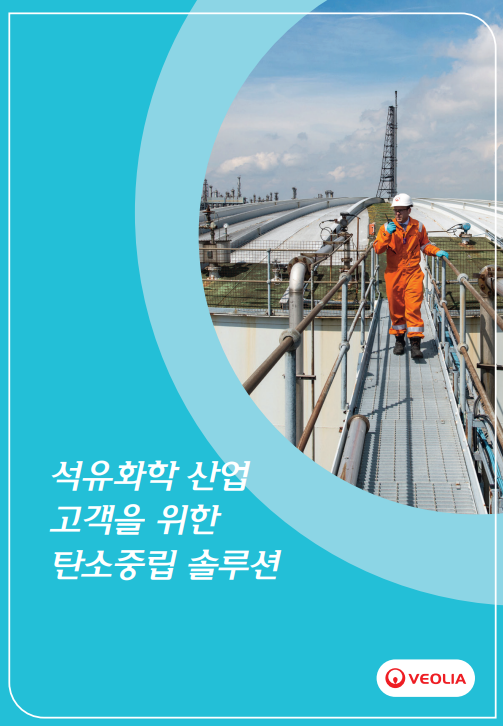South Korea’s Carbon Challenge: How CCUS is Leading Industrial Emission Reductions
Million tonnes of CO2 were emitted in South Korea in 2023,
making it one of the top global carbon emitters.
Of total emissions of industrial sectors alone,
with steel, petrochemicals, and semiconductors
being major contributors.
To tackle this challenge, the South Korean government has set ambitious targets to capture and store 4.8 million tonnes of CO₂ annually by 2030, supporting the development of industrial CCUS hubs and incentivizing companies to adopt low-carbon technologies. As industries race to comply with regulatory frameworks and improve sustainability, investments in CCUS are accelerating across the country.
South Korea’s CCUS Policies: Key Government Strategies and Industry Adoption
Recognizing the urgency of climate action, South Korea has enacted a dedicated CCUS Act (2024), streamlining regulatory procedures and establishing financial incentives to support the deployment of CCUS solutions. The government is fostering strategic partnerships and R&D funding programs to enhance the scalability of carbon capture technologies. Key elements of the policy framework include:
- The Korean Emissions Trading Scheme (K-ETS): Incentivizing industries to integrate CCUS into their decarbonization strategies.
- CCUS Innovation Grants: Financial support for companies investing in capture and storage technologies.
- International Carbon Storage Agreements: As domestic geological storage is limited, Korea is partnering with countries such as Malaysia and Australia to explore CO₂ storage solutions abroad.
These initiatives are positioning South Korea as a leader in CCUS adoption, with industrial players increasingly investing in capture and utilization technologies to meet their ESG commitments.

Major CCUS Projects in South Korea: Industrial Carbon Capture in Action
Several major CCUS projects are currently shaping South Korea’s industrial decarbonization efforts:
- The Donghae CCUS Hub: This offshore storage project will repurpose depleted gas fields to store over 1.2 million tonnes of CO₂ per year by 2028.
- Carbon Capture in Petrochemicals: Industrial facilities are integrating CCUS with advanced chemical processing to convert captured CO₂ into high-value products.
- Carbon-Neutral Microelectronics Manufacturing: The semiconductor industry, a backbone of the Korean economy, is leveraging CCUS to minimize emissions from high-energy fabrication processes.
These initiatives highlight the growing momentum behind CCUS as a scalable and effective solution for reducing industrial emissions.

Carbon Capture, Utilisation and Storage
How Industry Leaders Are Driving CCUS Adoption in South Korea
As companies navigate the transition to low-carbon operations, leaders in resource management and environmental solutions, such as Veolia, are playing a crucial role in implementing CCUS strategies. Veolia, a global pioneer in sustainable solutions, supports industries in integrating CCUS within their operations, ensuring efficient carbon capture, transportation, and storage.
With decades of expertise across multiple industries, Veolia provides tailored decarbonization solutions to businesses in South Korea, including petrochemicals, steel, microelectronics, pharmaceuticals, and beyond. The company leverages its:
to optimize energy efficiency, monitor CO₂ emissions, and implement CCUS technologies that align with regulatory requirements and sustainability goals.
By combining CCUS with circular economy initiatives, Veolia helps industries reduce emissions while optimizing resource efficiency—turning captured CO₂ into valuable byproducts and contributing to the broader goal of carbon neutrality.
Scaling CCUS for a Low-Carbon Future in South Korea
With CCUS gaining traction, South Korea is well-positioned to become a regional hub for carbon capture and storage solutions. However, challenges remain, including cost optimization, infrastructure expansion, and cross-border collaboration for CO₂ storage. Continued investment, regulatory support, and technological innovation will be essential in scaling CCUS and driving industrial decarbonization.
As industries seek trusted partners to navigate this transformation, Veolia’s expertise in end-to-end CCUS integration will be critical in achieving long-term sustainability goals. By combining expertise in carbon management, digital monitoring solutions, and industrial process optimization, Veolia is paving the way for a low-carbon future in South Korea.
The Role of CCUS in South Korea’s Decarbonization Strategy
CCUS is emerging as a cornerstone of South Korea’s decarbonization strategy, offering a pathway for industries to reduce emissions while maintaining competitiveness. As policies evolve and technologies advance, companies must proactively invest in CCUS to stay ahead of regulatory changes and sustainability expectations.
Want to learn more?








